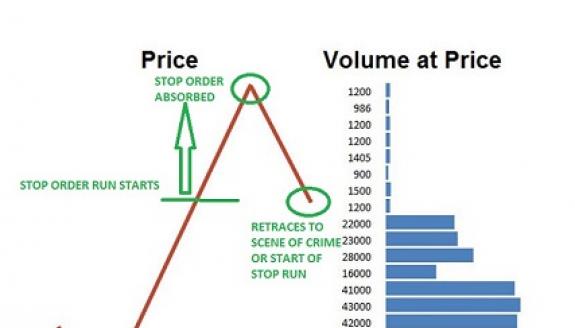
Forex market is open 24/7, five days per week, unlike other financial assets like stocks. Trades can take place at any time, day or night. It is possible to open a demo account in order to test the waters before opening a real trade account.
Leverage in forex is a huge deal. Borrowing money from a broker can help increase the chances of a trade. This allows you the opportunity to trade larger currency pairs than what you would otherwise be able to afford. The leverage ratios for the forex industry range from a modest 1:3 to the extreme end of the scale. It is typically capped at 50:1.
Other benefits include low entry costs and minimal regulatory oversight. Unlike most other financial markets, the forex market is largely unregulated, meaning there are no central bank regulators to intervene and push prices in a particular direction. This also means there is no insider trading to worry about.

Forex is a worldwide phenomenon. There are markets in all time zones around the globe. The market has trillions of transactions every day, which means it is constantly changing. This allows traders to profit from small price movements that can lead to dramatic gains.
It is unique that the forex industry allows over-the–counter transactions. This means that traders are able to purchase and sell currencies direct without the need for physical exchanges. The forex market, which is estimated to be worth quadrillions in dollars, operates around the clock, seven days per week. Foreign exchange is therefore a good choice for those who travel frequently.
While the forex market may not be for everyone, it does have some serious benefits for the savvy trader. Forex is an excellent choice for beginners because it requires a small initial investment. Forex industry offers a variety of apps to help you learn about foreign exchange markets, including demo accounts, trading calculators, trading software, and trading software.
Forex trading has its downsides. You could rely on luck to get your trading goals. There are instances when you may lose money on a trade, and it's a good idea to be prepared for these eventualities. FX markets are known for their high-risk, high reward trades.

It's important to remember that the forex industry is a highly liquid one, with nearly 4 trillion dollars changing daily. It is difficult to control the market in short time periods because of its size.
The forex market also boasts the highest leverage. That is what explains its remarkable numbers. Dealers in the forex industry have to buy a minimum of 100,000 units. This is a crucial factor in determining whether you make money or lose money.
FAQ
Can you trade on the stock-market?
The answer is yes. There are many differences in the world. Some have better skills and knowledge than others. They should be rewarded for what they do.
Other factors also play a role in whether or not someone is successful at trading stocks. If you don’t have the ability to read financial reports, it will be difficult to make decisions.
So you need to learn how to read these reports. You must understand what each number represents. Also, you need to understand the meaning of each number.
You'll see patterns and trends in your data if you do this. This will help you decide when to buy and sell shares.
If you're lucky enough you might be able make a living doing this.
How does the stock market work?
A share of stock is a purchase of ownership rights. Shareholders have certain rights in the company. He/she is able to vote on major policy and resolutions. He/she may demand damages compensation from the company. The employee can also sue the company if the contract is not respected.
A company cannot issue any more shares than its total assets, minus liabilities. This is called capital adequacy.
Companies with high capital adequacy rates are considered safe. Low ratios can be risky investments.
Why is a stock called security?
Security is an investment instrument that's value depends on another company. It can be issued by a corporation (e.g. shares), government (e.g. bonds), or another entity (e.g. preferred stocks). The issuer can promise to pay dividends or repay creditors any debts owed, and to return capital to investors in the event that the underlying assets lose value.
How are securities traded?
The stock exchange is a place where investors can buy shares of companies in return for money. In order to raise capital, companies will issue shares. Investors then purchase them. Investors then resell these shares to the company when they want to gain from the company's assets.
The price at which stocks trade on the open market is determined by supply and demand. The price rises if there is less demand than buyers. If there are more buyers than seller, the prices fall.
You can trade stocks in one of two ways.
-
Directly from your company
-
Through a broker
How can I invest in stock market?
Through brokers, you can purchase or sell securities. A broker buys or sells securities for you. When you trade securities, brokerage commissions are paid.
Brokers often charge higher fees than banks. Because they don't make money selling securities, banks often offer higher rates.
An account must be opened with a broker or bank if you plan to invest in stock.
If you use a broker, he will tell you how much it costs to buy or sell securities. The size of each transaction will determine how much he charges.
Ask your broker questions about:
-
The minimum amount you need to deposit in order to trade
-
What additional fees might apply if your position is closed before expiration?
-
What happens when you lose more $5,000 in a day?
-
How long can you hold positions while not paying taxes?
-
How you can borrow against a portfolio
-
Transfer funds between accounts
-
how long it takes to settle transactions
-
the best way to buy or sell securities
-
How to avoid fraud
-
How to get help when you need it
-
whether you can stop trading at any time
-
How to report trades to government
-
How often you will need to file reports at the SEC
-
Whether you need to keep records of transactions
-
If you need to register with SEC
-
What is registration?
-
How does it impact me?
-
Who should be registered?
-
What time do I need register?
What is security in the stock exchange?
Security is an asset that generates income. Most common security type is shares in companies.
Different types of securities can be issued by a company, including bonds, preferred stock, and common stock.
The value of a share depends on the earnings per share (EPS) and dividends the company pays.
When you buy a share, you own part of the business and have a claim on future profits. If the company pays a payout, you get money from them.
You can always sell your shares.
What is a fund mutual?
Mutual funds are pools of money invested in securities. They provide diversification so that all types of investments are represented in the pool. This helps to reduce risk.
Professional managers manage mutual funds and make investment decisions. Some funds offer investors the ability to manage their own portfolios.
Most people choose mutual funds over individual stocks because they are easier to understand and less risky.
Statistics
- US resident who opens a new IBKR Pro individual or joint account receives a 0.25% rate reduction on margin loans. (nerdwallet.com)
- Individuals with very limited financial experience are either terrified by horror stories of average investors losing 50% of their portfolio value or are beguiled by "hot tips" that bear the promise of huge rewards but seldom pay off. (investopedia.com)
- "If all of your money's in one stock, you could potentially lose 50% of it overnight," Moore says. (nerdwallet.com)
- Ratchet down that 10% if you don't yet have a healthy emergency fund and 10% to 15% of your income funneled into a retirement savings account. (nerdwallet.com)
External Links
How To
How to Trade Stock Markets
Stock trading involves the purchase and sale of stocks, bonds, commodities or currencies as well as derivatives. The word "trading" comes from the French term traiteur (someone who buys and sells). Traders are people who buy and sell securities to make money. This is the oldest type of financial investment.
There are many ways to invest in the stock market. There are three types of investing: active (passive), and hybrid (active). Passive investors are passive investors and watch their investments grow. Actively traded investor look for profitable companies and try to profit from them. Hybrid investor combine these two approaches.
Passive investing can be done by index funds that track large indices like S&P 500 and Dow Jones Industrial Average. This is a popular way to diversify your portfolio without taking on any risk. You can simply relax and let the investments work for yourself.
Active investing is about picking specific companies to analyze their performance. The factors that active investors consider include earnings growth, return of equity, debt ratios and P/E ratios, cash flow, book values, dividend payout, management, share price history, and more. They then decide whether or not to take the chance and purchase shares in the company. If they feel that the company is undervalued, they will buy shares and hope that the price goes up. On the other side, if the company is valued too high, they will wait until it drops before buying shares.
Hybrid investing blends elements of both active and passive investing. You might choose a fund that tracks multiple stocks but also wish to pick several companies. In this scenario, part of your portfolio would be put into a passively-managed fund, while the other part would go into a collection actively managed funds.